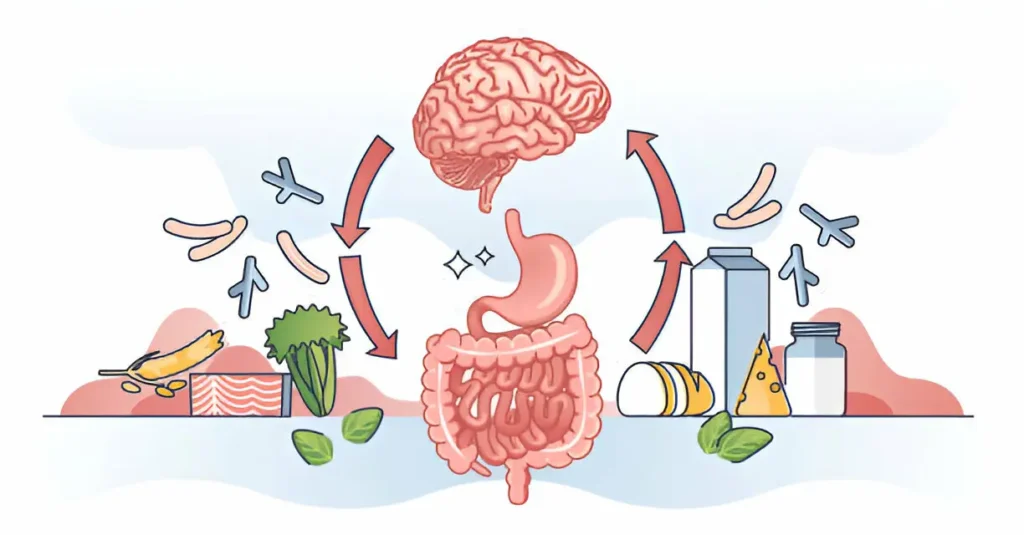Your gut does more than digest food—it plays a key role in your metabolism and overall health. This blog explores the connection between gut health and energy processing, why it’s important, and tips to improve both.
What Is Gut Health, and Why Is It Important?
Your gut, often referred to as your second brain, hosts trillions of microorganisms, collectively called the gut microbiome. These include bacteria, viruses, fungi, and other tiny organisms that live primarily in your intestines. A healthy gut microbiome is balanced, meaning it has a diverse community of beneficial bacteria that outnumber harmful ones.
When your gut microbiome is thriving, it positively impacts everything from digestion and immune function to mood and cognitive health. But one of its most underrated roles? Supporting and influencing your metabolism.
What Is Metabolism?
Put simply, metabolism is your body’s process of converting food into energy. Whether you’re exercising, breathing, or even sleeping, metabolism ensures your body has the energy it needs to function. It also determines how efficiently your body burns calories, stores fat, and builds muscle.
Your gut microbiome plays a key role in this process and can even influence whether your metabolism operates at an optimal rate or slows you down.
How Gut Health Impacts Metabolism
1. Microbes Influence How We Process Food
Your gut microbiome helps break down the food you eat, especially fiber, which your body cannot digest without microbial assistance. Beneficial gut bacteria ferment fiber, producing short-chain fatty acids (SCFAs) like butyrate and acetate, which not only feed the gut lining but also contribute to regulating your body’s energy usage.
Research shows that an imbalance in gut bacteria, often referred to as dysbiosis, can lead to poor nutrient absorption and excess energy extraction from food. This can cause weight gain or difficulty losing weight even when your calorie intake appears “normal.”
2. Gut Microbiota and Fat Storage
Gut health influences how your body stores fat. Studies link certain bacterial strains, like Firmicutes and Bacteroidetes, to obesity. People with higher levels of Firmicutes relative to Bacteroidetes tend to extract more calories from the same amount of food compared to those with a balanced microbiome. Simply put, if your gut is out of balance, you might be storing more fat than necessary.
3. Regulating Hormones That Impact Metabolism
Your gut microbiome also affects hormones that control hunger and fullness, such as ghrelin and leptin. Beneficial bacteria help communicate with these hormones, influencing how much you eat and when you stop. A disrupted microbiome can result in hormonal imbalances that make it harder to regulate your appetite.
For instance:
- Higher gut inflammation due to poor diet or an imbalanced microbiome can disrupt leptin signaling, leading to overeating.
- Gut bacteria may also influence insulin sensitivity, which affects how your body stores and uses sugar from your bloodstream. Poor gut health often correlates with insulin resistance, a risk factor for type 2 diabetes.
4. Reducing Chronic Low-level Inflammation
An unhealthy gut can lead to leaky gut syndrome, where the intestinal lining becomes permeable and allows harmful substances to enter the bloodstream. This triggers chronic low-level inflammation, which is a major culprit in metabolic dysfunction, including insulin resistance and weight gain. Maintaining a healthy gut barrier can reduce inflammation and promote metabolic health.
Signs Your Gut Health Could Be Affecting Your Metabolism
You might not always feel the direct effects of gut issues, but certain symptoms can signal an imbalance in your gut microbiome or metabolism:
- Frequent bloating or digestive discomfort
- Unexplainable weight gain or difficulty losing weight
- Low energy levels despite sufficient sleep
- Increased sugar cravings or irregular appetite
- Frequent illnesses or a weakened immune system
If you’re experiencing any of these issues, your gut may need some attention.
How to Improve Gut Health and Boost Metabolism
The good news? You have the power to improve your gut health and, in turn, support a healthier metabolism. Here are some actionable steps you can take:
1. Prioritize Fiber-rich Foods
Feed your gut bacteria by eating a variety of plant-based, fiber-rich foods such as fruits, vegetables, whole grains, lentils, and beans. These foods act as prebiotics, nourishing the beneficial bacteria in your gut.
2. Include Probiotics in Your Diet
Probiotics, or beneficial live bacteria, can help rebalance your gut microbiome. Fermented foods like yogurt, kefir, sauerkraut, kimchi, and miso are excellent sources of probiotics. Alternatively, consider a high-quality probiotic supplement for extra support.
3. Minimize Processed Foods
Highly processed foods tend to feed harmful bacteria in the gut and lead to imbalances. Cut back on sugary snacks, refined carbohydrates, artificial sweeteners, and unhealthy fats whenever possible.
4. Stay Hydrated
Drinking enough water can support the mucosal lining of the intestines and promote a healthy gut environment for your microbiome.
5. Consider Intermittent Fasting
Emerging research suggests that intermittent fasting may encourage a healthier gut microbiome by providing a break for your digestive system. This can also boost SCFA production, reduce inflammation, and support fat metabolism.
6. Manage Stress Levels
Stress can disrupt your gut microbiome. Practices like meditation, yoga, deep breathing, or even regular exercise can help improve stress management and benefit gut health.
7. Get Enough Sleep
Sleep directly impacts your metabolism and gut health. Aim for 7-9 hours of quality sleep each night to allow your body to heal and maintain balance.
8. Consult a Professional
If you suspect a serious gut or metabolic issue, it’s best to seek advice from a healthcare provider, dietitian, or a weight loss clinic such as those in Utah, who can provide a personalized approach to healing your gut.
Conclusion
Gut health is key to digestion, metabolism, hormone balance, reducing inflammation, and energy. Poor gut health can slow metabolism, cause weight gain, and increase chronic disease risk. Simple steps like adding probiotics or cutting processed foods can improve gut health and overall well-being. Prioritize your gut for better health.
Also Read-Why Joint Health Isn’t Just a Senior Pet Concern
